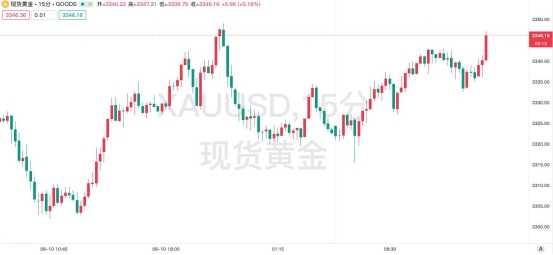The Western camp is no longer monolithic! Britain, Canada and five other countries jointly sanctioned Israel's far-right minister, and the demand for gold as a safe haven heats up
- 2025年6月12日
- Posted by: Macro Global Markets
- Category: News

On June 10, local time, the United Kingdom, Canada, Australia, New Zealand and Norway issued a joint statement announcing asset freezes and travel bans on Israeli National Security Minister Itamar Ben-Gvir and Finance Minister Bezalel Smotrich. The reason for the sanctions is that the two have repeatedly incited extreme violence against Palestinians, including supporting settlement expansion and advocating forced displacement of Palestinians. This is the first time that Western countries have imposed sanctions on Israeli cabinet ministers, marking a significant divergence in the Western camp's policy toward Israel.

The two sanctioned ministers are both leaders of Israel's far-right political parties, and their radical remarks and actions have long caused international controversy. For example, Smotrich has called for the "destruction of Gaza" and promoted the annexation of the West Bank, while Ben-Gvir has publicly opposed the entry of humanitarian aid into Gaza, claiming that it would flow into the hands of Hamas. In a joint statement, the five countries stressed that the atrocities of extremist settlers and the expansion of settlements are endangering the "two-state solution", and the actions of the two "seriously violate Palestinian human rights."
Israel responded swiftly and strongly. Foreign Minister Gideon Saar called the sanctions "unacceptable" and the government will hold a special meeting next week to discuss countermeasures. On the evening of the 10th, Smotrich announced the cancellation of exemptions for cooperation with Palestinian banks, a move that could lead to further deterioration of the Palestinian economy. On the same day, US Secretary of State Rubio condemned the five-nation action, saying it "does not help promote a ceasefire" and urged the lifting of sanctions.
2. Geopolitical Impact and Market Response
The sanctions have exacerbated divisions within the Western camp. Although the United States has repeatedly reaffirmed its alliance with Israel and vetoed the UN Security Council's Gaza ceasefire resolution in May, the actions of the five countries show that Europe and the Commonwealth countries' tolerance for Israel's policies has dropped to a freezing point. Analysts point out that this may undermine Israel's international legitimacy and set a precedent for more countries to take similar measures in the future.
Driven by the escalation of geopolitical risks, the safe-haven demand in the gold market has significantly increased. In the early Asian session on June 11, the spot gold price fluctuated upward, reaching a high of $3,337.21 per ounce, and finally closed at $3,336.14 per ounce, an increase of 0.39%. In the European session, the gold price continued to rise, and the spot price of London gold once broke through the $3,340 mark, reflecting the market's concerns about the uncertainty of the situation in the Middle East.

Hugh Lovatt, a senior fellow at the European Council on Foreign Relations, pointed out that the five-country sanctions are "unprecedented" and highlight the strong dissatisfaction of Western countries with Israel's policies. Gold market analysts believe that the short-term geopolitical risk premium will continue to support gold prices, but attention should be paid to the Federal Reserve's monetary policy trends and the progress of Sino-US trade negotiations. If Israel takes further countermeasures, such as expanding the economic blockade of Palestine, it may lead to further escalation of the situation in the Middle East and push the gold price to $3,380 (200-day moving average).
The sanctions imposed by the UK, Canada and other five countries on Israel's far-right ministers not only exposed the cracks within the Western camp, but also injected new risk-averse momentum into the gold market. Under the dual game of the Fed's policy path and geopolitical risks, the gold price may remain volatile and strong in the short term. Investors need to pay close attention to Israel's countermeasures and the subsequent response of the international community.
